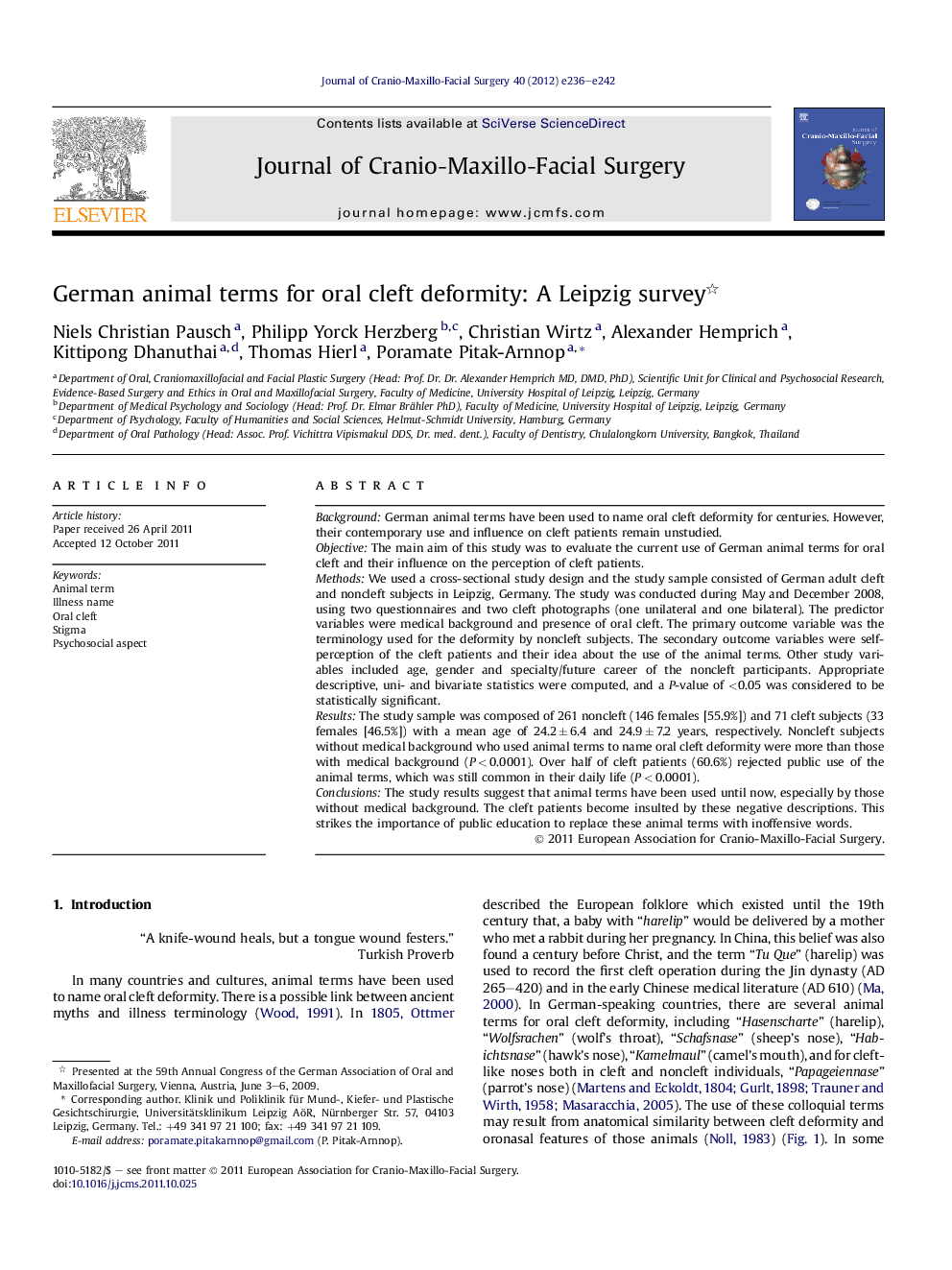| Article ID | Journal | Published Year | Pages | File Type |
|---|---|---|---|---|
| 3143395 | Journal of Cranio-Maxillofacial Surgery | 2012 | 7 Pages |
BackgroundGerman animal terms have been used to name oral cleft deformity for centuries. However, their contemporary use and influence on cleft patients remain unstudied.ObjectiveThe main aim of this study was to evaluate the current use of German animal terms for oral cleft and their influence on the perception of cleft patients.MethodsWe used a cross-sectional study design and the study sample consisted of German adult cleft and noncleft subjects in Leipzig, Germany. The study was conducted during May and December 2008, using two questionnaires and two cleft photographs (one unilateral and one bilateral). The predictor variables were medical background and presence of oral cleft. The primary outcome variable was the terminology used for the deformity by noncleft subjects. The secondary outcome variables were self-perception of the cleft patients and their idea about the use of the animal terms. Other study variables included age, gender and specialty/future career of the noncleft participants. Appropriate descriptive, uni- and bivariate statistics were computed, and a P-value of <0.05 was considered to be statistically significant.ResultsThe study sample was composed of 261 noncleft (146 females [55.9%]) and 71 cleft subjects (33 females [46.5%]) with a mean age of 24.2 ± 6.4 and 24.9 ± 7.2 years, respectively. Noncleft subjects without medical background who used animal terms to name oral cleft deformity were more than those with medical background (P < 0.0001). Over half of cleft patients (60.6%) rejected public use of the animal terms, which was still common in their daily life (P < 0.0001).ConclusionsThe study results suggest that animal terms have been used until now, especially by those without medical background. The cleft patients become insulted by these negative descriptions. This strikes the importance of public education to replace these animal terms with inoffensive words.
